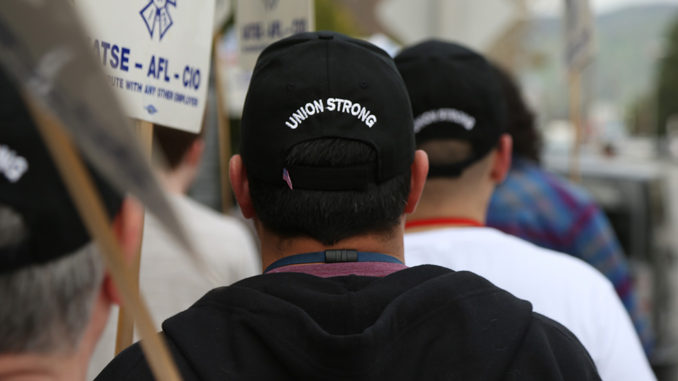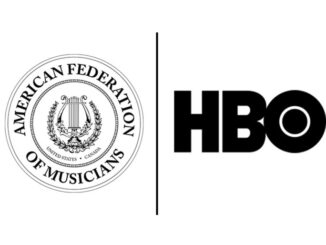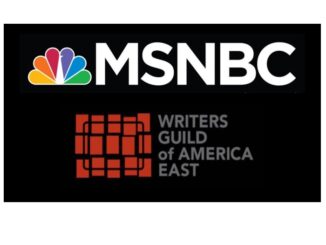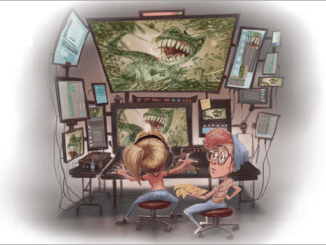
by Tris Carpenter

About once or twice a month, we get a call from one of our members who asks us, “When is [insert name of the show on which he or she is working] going to go union?” What on earth does “go union” mean, really? Is it a force of nature, akin to the tides or the sunrise? Or like the inevitable change of seasons? Or is it more like a high school cheerleading squad? “Gimme a U! Gimme me an N! Gimme an I! Gimme an O! Gimme another N! What’s that spell? Goooooo UNION!!”
Seriously, it is very rare that shows already underway simply “go union.” They are “organized,” more often than not by the production crew. It’s the result of numerous hours spent talking over the idea that a union contract is the best protection, and creating consensus behind the drive to accomplish that goal.
Organizing is an active effort, and one that has certain perils. It requires that people talk to their colleagues. It also requires that people understand the benefits of union representation. And it requires that at least one or two leaders emerge who are willing to take certain risks in order to move the effort forward.
Organizing cannot be done without a very high level of discussion and interaction between the people who will be affected by it. I have tried to organize people by being the hub, the center of the effort, and having people speak more to me than to each other––and those efforts failed miserably. And, as should be obvious by now, such an effort cannot take place without the active participation of several people who are committed to the idea. Because if the employer thinks the crew is not behind the union representative, the company will simply dig in its heels and refuse to negotiate. The power really comes from the people who do the work.
Shows “go union” when we––you and the Guild together––make them.
To make this great leap, people have to believe in the Guild as well as in each other, and have the fortitude to stand up for the things they want. Because, like most good things in life, a union contract isn’t something that’s simply given to you as a gift; it’s something that you have to work at and earn for yourself.
On its face, organizing sometimes seems like nothing more than a huge headache and an uphill battle. However, you do have one major advantage. There are some very hard-working, committed and highly experienced professionals here at the Guild who spend their entire working day (and usually some time beyond regular working hours, too) helping our members to get the benefits of union membership.
Simply put, we like to make sure you get every dime coming to you, and every hour and nickel you earned credited toward your pension. We like to make a difference by seeing that you get a fair shake. And, yeah, it does get crazy around here––we sometimes have more on our plates than we can chew in a single day––but we make every effort to help those who are willing to come forward and ask for our help.
However it is a joint effort between our members and the staff that makes things work. So, in the end, shows “go union” when we––you and the Guild together––make them.
So, please call us when you’re on a non-union job. Tell us on which show you’re working (remember, we’re not clairvoyant). Talk to your colleagues. Find a crew list and fax it to us so we can contact other people working on the show or the production crew; in some cases, the production crew may already be talking, but it’s only fair that we in post do our part, too, not just ride on their coattails. (Also, if we have a list, we might find people whom we know from other organizing efforts––another big plus.) Work with us to develop a strategy to create that critical mass and bring the company to the table to negotiate. Come to the negotiations with us and help us create a deal that is fair for everyone.
Who knows? You might find out that standing up for yourself is incredibly rewarding.





